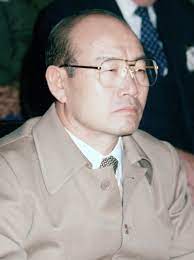


화려한 휴가 | May 18
개봉 Released
감독 Directed by
역사배경 History
주연 Cast
2007.07.25
김지훈 Kim Ji-hoon
5.18 광주 민주화 운동 Gwangju Uprising
김상경 Kim Sang-kyung
안성기 Ahn Sung-ki
이요원 Lee Yo-won
이준기 Lee Joon-gi

May 18 is a fictionalized account of the Gwangju massacre that took place from May 18 to May 27 1980, when General Chun Doo-hwan tried to eliminate any rebels by using military force.

The massacre was a response to the coup d'état of May Seventeenth that installed Chun Doo-hwan as military dictator and implemented martial law. Following his ascent to power, Chun arrested opposition leaders, closed all universities, banned political activities, and suppressed the press.
President Park was assassinated in October of 1979 on a wave of pro-democracy student protests. After Park's death, South Korea went through a brief period of political liberalization but this liberalization was abruptly ended by a military coup d'etat on December 12, 1979 led by Chun Doo Hwan. He, like President Park Chung Hee used the tensions between North and South Korea to legitimize martial law in the name of “national security”.


On the morning of 18 May, students gathered at the gate of Chonnam National University in protest of its closing. Over the course of the day, the conflict broadened to around 2000 participants. Although local police had initially handled the protests, by 4 pm, paratroopers from the Republic of Korea Special Warfare Command (ROK-SWC) took over. The arrival of 686 soldiers from the 33rd and 35th battalions of the 7th Airborne Brigade marked the beginning of a brutal and infamous phase of suppression of the massacre.
During this phase, South Korean soldiers indiscriminately clubbed demonstrators and bystanders. Soldiers used bayonets to attack, torture, and kill residents indiscriminately. Soldiers raided buildings unrelated to the demonstration, including hotels, cafés, and barbershops. The violent suppression of the protests by the ROK-SWC led the number of protesters to rapidly increase, exceeding 10,000 by 20 May. Under the military dictatorship of Chun Doo-hwan, the South Korean government named the massacre the ''Gwangju Riot,'' and claimed that it was being instigated by "communist sympathizers and rioters" acting under the support of the North Korean government.





Due to heavily militarization, most major workplaces in South Korea had caches of weapons. Protesters seized these weapons, buses, taxis, and even armored personnel carriers, forming armed militias. They fought against the army until finally, on May 21, the Special Forces withdrew and the city was left to the citizens.

The US, who held joint-command with the South Korean military, gave the military government the go-ahead to take troops closer to North Korean border to take back Gwangju. On May 27, at 3:30 A.M., the army swarmed Gwangju in Operation: Fascinating Vacations.
The uprising started as student demonstrations but the military’s random killings angered citizens into joining the student demonstrators, escalating it into a massive uprising. South Koreans were shocked that the government would use such brutal force against its citizens, and felt further betrayed by the United States after discovering that General John A. Wickham, Jr., had released troops to end the rebellion.
The May 18 Uprising succeeded in heightened citizens' desire for democracy, culminating in 1987 when the People's Power movement finally broke the power of the South Korean military.
The Korean title ‘화려한 휴가’literally translates to ‘A splendid holiday’, was actually the name given to the operation carried out by troop specifically trained to suppress the Gwangju uprising and seize the entire region. A far cry from the events that unfolded, the name of the operation brings goosebumps as it suggessts how little importance was placed on the lives of the people of Gwangju in their pursuit of taking over the region.

The Korean title ‘화려한 휴가’literally translates to ‘A splendid holiday’, was actually the name given to the operation carried out by troop specifically trained to suppress the Gwangju uprising and seize the entire region. A far cry from the events that unfolded, the name of the operation brings goosebumps as it suggessts how little importance was placed on the lives of the people of Gwangju in their pursuit of taking over the region.







The 5·18 Memorial Park is located in Gwangju and was established to remember the May 18 Democracy Movement. The park houses various historical and cultural facilities, including the 5·18 Library, 5·18 Cultural Center, Education Center, Daedong Plaza, Owoldae Tower, and other memorial sculptures and monuments.






